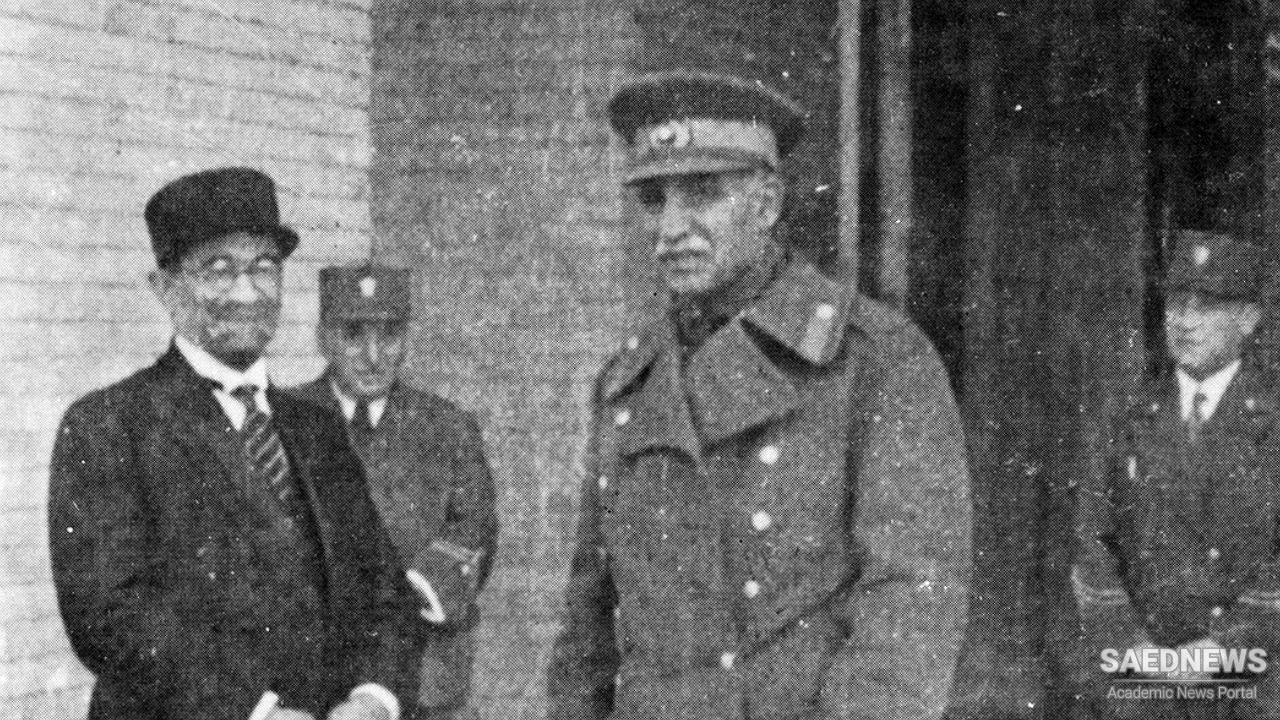Defeated by the Jangal forces and their Bolshevik allies in Gilan, it became clear that Russian senior officers, even if unsympathetic to the Bolsheviks, could no longer reliably command the entirely Iranian rank and file, given the Russian officers’ deep hostility toward the British and their Iranian supporters. Ironside was anxious to find a capable Iranian senior officer with combat experience and anti-Bolshevik credentials to lead the force.
Colonel Reza Khan, recommended by another Iranian senior Cossack officer, seemed to be the desirable person to match such a job description. Tall, dark, broad shouldered and charismatic, with piercing eyes, Reza Khan’s rugged military demeanor and management skills, as it turned out, were ideal for the task. As a Cossack officer he had demonstrated leadership and savvy but also severity and ruthlessness, qualities that had allowed him to rise through the Cossack ranks from his humble beginnings as a stableboy at the age of fifteen to senior officer in the Hamadan Cossack regiment at the age of forty-three.
Born around 1877 to a soldiering family from the Palani clan in the remote village of Alasht in the mountainous Savadkuh district of the Caspian province of Mazandaran, Reza Khan’s father and grandfather had served in the Qajar army. His mother was the daughter of a Muslim émigré (mohajer) from Iravan who had settled in Tehran after the population exchange at the conclusion of the Russo-Persian War of 1826–1828. Reza’s father died while he was still an infant, so his destitute mother took her son to Tehran, where she lived with her brothers, one of them a soldier in the newly established Cossack Division. Reza had lost his mother at the age of six, and his childhood and early youth were filled with forlorn neglect and virtually no education.
The first available record of Reza Khan’s service dates to 1911, when as a petty officer he fought in the northwest against the counterrevolutionary prince Salar al-Dowleh. By 1918, when the Cossack Brigade, now renamed Cossack Division, repelled the Na’ebi rebellion in Kashan, Reza was promoted to the rank of colonel. Involved in the inner politics of the Cossack Division, he took an active part in the removal of a commanding Russian officer because of his alleged Bolshevik proclivities. As he sensed an opportunity for power, he further gravitated toward the British officers in their headquarters at Qazvin. With the changing political climate, which put the British officers in control of all resources, promotions, and the very existence of the Cossack Division, it is difficult to imagine how a shrewd and ambitious officer like Reza Khan could have done otherwise.
It is also hard to believe that Reza Khan’s involvement in the coup in the making could have been organized without at least tacit British knowledge. Without subscribing to the wild speculations common at the time, or the later hypotheses that the British hatched the coup, reliable evidence points to some British effort to facilitate collaboration between the civilian wing of the coup and its military counterpart. The Cossack force of about four thousand under Reza Khan’s command was partially reequipped and financed in Qazvin by officers of the Norperforce. They may even have encouraged Reza Khan to march on the capital to block perceived Bolshevik advances. However, it was only in the vicinity of Tehran that Reza Khan came to know Sayyed Zia. Even at this stage, the latter did not have a clear idea of the practicalities and logistics of the coup. Yet if Colonel Reza Khan had collaborated with British officers, or was even handpicked by them, he was by no means their poppet or even willing to succumb to their wishes.


 The Shah and the Imagery of the Occident
The Shah and the Imagery of the Occident














































